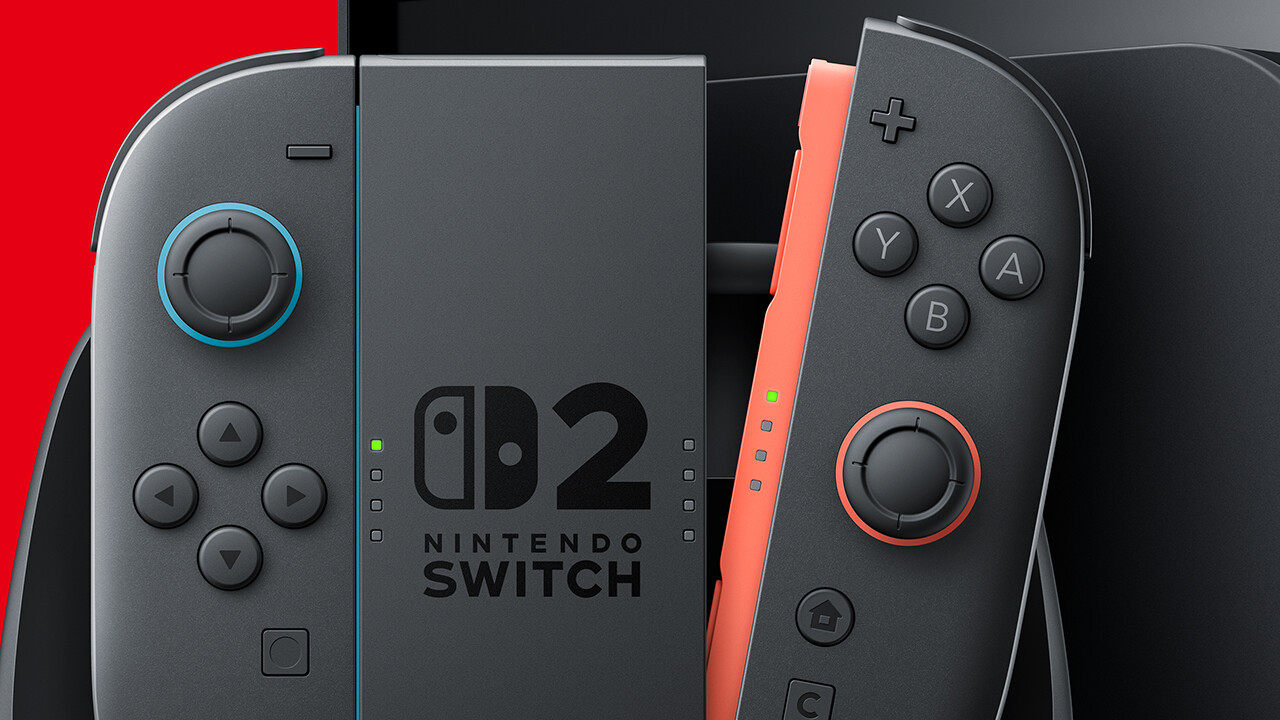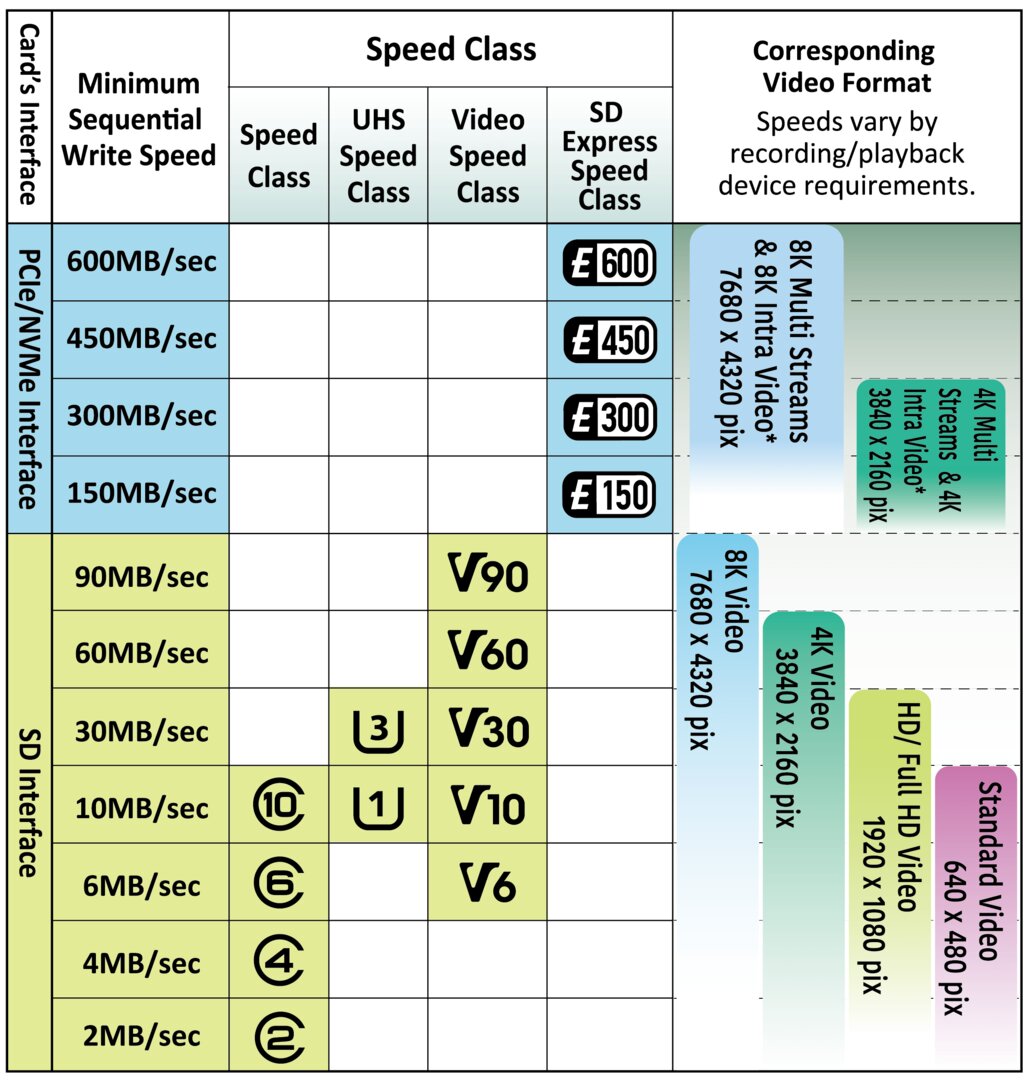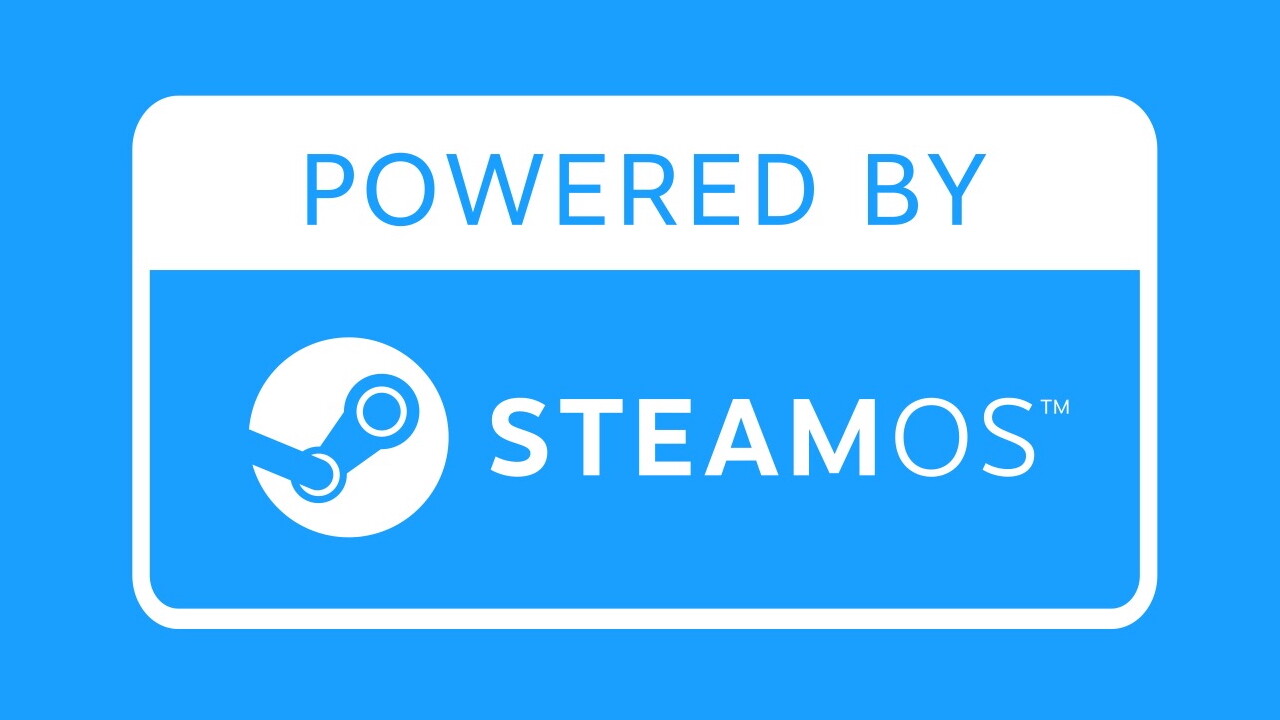Nintendo Switch 2 Hardware: Specifications Compared to its Predecessor 86 comments

Image: Nintendo
This section provides an overview of the full specifications of the recently unveiled Nintendo Switch 2 handheld game console. The comparison shows what has changed in detail in the Switch OLED and its predecessors.
Larger Display with FHD and 120 Hz
Nintendo is doing without the OLED display as with the OLED Switch. However, the Switch 2 LCD has grown again, with a size of 7.9 inches. In addition, the resolution has been significantly increased from 1280 × 720 to 1920 × 1080 (Full HD)—more than twice as many pixels are available, which are displayed at up to 120 Hz. The display also supports HDR10 and variable refresh rate (VRR).
Compared to the original Switch, with its 6.2-inch display, the screen size has increased by 62%. The image area is at least 27% larger than the 7.0-inch OLED Switch.
The chip remains the big question mark.
Nintendo hasn’t yet revealed which processor or SoC is in the Switch 2. It’s clear that it’s still a custom chip from NVIDIA. It has dedicated tensor and ray tracing cores, enabling graphics performance 10 times that of the first Nintendo Switch, Nvidia explains.
With 10X the graphics performance of the Nintendo Switch, the Nintendo Switch 2 delivers smoother gameplay and sharper visuals.
The tensor cores boost AI-powered graphics while maintaining efficient power consumption. The RT cores enhance in-game realism with dynamic lighting and natural reflections. Variable refresh rate (VRR) via NVIDIA G-Sync in handheld mode ensures ultra-smooth, tear-free gameplay.
Nvidia
For Switch 2, the Tegra 239 (Orin) was already rumored to be available years ago, but there’s been a lack of confirmation.
What Nintendo and Nvidia have only revealed is that the GPU will support DLSS and Raytracing. The Tegra X2’s dusty Pascal GPU is reportedly out of the running. The T239’s Ampere GPU from Nvidia’s Orin family is said to be suitable for both.
Larger and heavier
The larger display isn’t surprising given the increased dimensions and weight. On the German product pages, Nintendo lists the dimensions as “166 mm x 272 mm x 13.9 mm,” including the two Joy-Con 2 controllers. Obviously, the width isn’t accurate. There’s also a 4.5-inch specification on the English product pages, which is equivalent to approximately 114 mm. Therefore, the editorial team is assuming this value. Thus, the Switch 2 would be about 3 cm longer, 1 cm wider, and as thick as the OLED Switch. The thickest point, the distance “from the tip of the control to the prominent parts of the ZL and ZR buttons,” is 30.7 mm. This is only a good 2 mm more than before.
The weight increases more clearly. It’s 401 grams without the Joy-Con controller, and therefore 35 percent more than the Nintendo Switch and 25 percent more than the OLED Switch.
With the new Joy-Con controllers, the weight increases to 534 grams. This is 34 percent more than the Switch 1 and 27 percent more than the Switch OLED. For a Joy-Con controller, the weight is about 66 grams, while the predecessor weighs about 50 grams. Nintendo Switch 2, OLED Switch, and Switch specifications in the Switch 2 comparison OLED Switch Dimensions 272 × 114 * × 13.9 mm (with Joy-Con)
(thickest point: 30.7 mm) 242 × 102 × 13.9 mm (with Joy-Con)
(thickest point: 28.4 mm) 239 × 102 × 13.9 mm (with Joy-Con)
(Thickest place: 28.4 mm) Weight 401 g
(534 g with joy-con) 320 g
(420 g with joy-con) 297 g
(398 g with Joy-Con) Display LCD, 7.9 inches, 1,920 × 1,080, 120 Hz, HDR10, VRR OLED, 7 inches, 1,280 × 720 LCD, 6.2 inches, 1,280 × 720 processor (SoC) Custom Nvidia Custom NVIDIO TEGRA X1 (T210)
CPU: 4 × ARM Cortex-A57, 4 × ARM Cortex-A53
GPU: GM20B, Maxwell, 256 Cuda-Cores RAM? 4 GB LPDDR4 FESTURE SAVING 256 GB UFS
Reserved for the operating system: 64 GB EMMC
Reserved for the operating system: 32 GB EMMC
Reserved for the operating system: ~6.2 GB MicroSD Express expansion ** microSD Video Output *** Maximum 3840 × 2160 at 60 fps
2560 × 1440 at 120 fps
1920 × 1080 at 120 fps per maximum 1920 × 1080 at 60 fps
Audio Output *** Linear PCM 5.1 speaker Stereo radio network Bluetooth?, Wi-Fi 6, LAN in TV mode Bluetooth 4.1, Wi-Fi 5, LAN in TV mode Sensor acceleration, gyroscope, brightness, mouse acceleration, gyroscope, brightness 5,220 mAh Li-ion battery
Runtime: 2 to 6.5 hours
Charging time: 3 hours Li-ion 4,310 mAh
Duration: 4.5 to 9 hours
Charging time: 3 hours
Li-ion 4,310 mAh
Duration: 4.5 to 9 hours
Charging time: 3.5 hours
Connections: 1 x HDMI, 2 x USB-C, 1 x 3.5 mm headphone jack (4-pin, CTIA)
1 x HDMI, 1 x 3.5 mm headphone jack (4 mm wide) * CTIA) * Nintendo 166 mm wide (114 mm)
** Regular microSD only for screenshots and videos
*** via HDMI cable to TV
Four times more storage space
With 256 GB, the internal mass storage now holds four times the amount of data compared to the OLED Switch and even eight times the amount of data compared to the first Switch. The mass storage now belongs to Universal Flash Storage (UFS) and is no longer the EMMC standard. This suggests higher data transfer rates, although it’s not yet known which UFS version is used.
MicroSD Express STATT MicroSD
 SD Speed Class (Express)
SD Speed Class (Express)
SD Speed Class (Express) (Image: SD Association)
For this purpose, the (Micro)SD Express standard achieves significantly higher performance thanks to the switch to PCIE/NVME. Bigger battery, shorter runtime
Higher resolutions require more power, and apparently, this also means increased power consumption for the Switch 2. Despite the Li-ion battery being increased from 4,310 mAh to 5,220 mAh, Nintendo specifies a significantly shorter runtime. Instead of 4.5 to 9 hours, it should only be 2 to 6.5 hours. The battery is said to recharge in about 3 hours, which is in line with the OLED Switch.
Learn more about the Nintendo Switch 2
Further information on the Nintendo Switch 2, which will be available on June 5, 2025, for €470, is provided below.
Nintendo Switch 2: Complete HD console with 120 Hz and 4K Edition costs 470 Euro Games Nintendo Switch 2 Edition: All titles and benefits of the upgrade packs at a glance Nintendo Switch 2: Is Nintendo’s approach right because it brings something, or wrong? 2 Nintendo Switch 2: Wireless GameCube controller with USB-C shown Nintendo Switch 2 Buy: Amazon, MediaMarkt and Saturn offer pre-order on topics: Gaming Nintendo Nintendo Switch Nintendo Switch Consoles Source: Nintendo

A lifelong video game enthusiast, Julien reviews the latest releases and explores the technologies transforming the gaming world.


